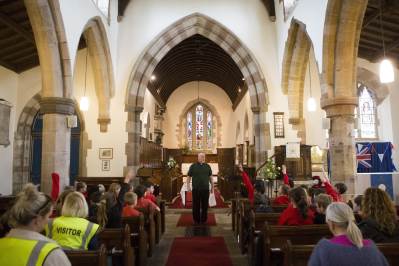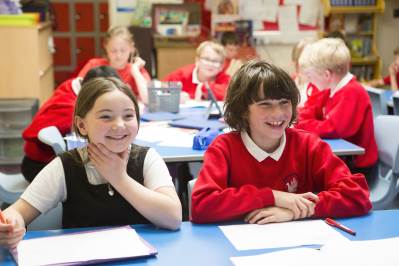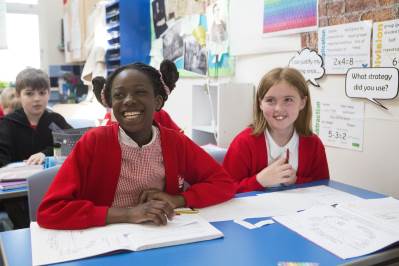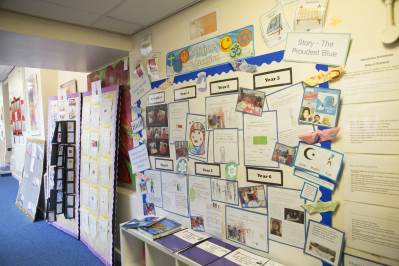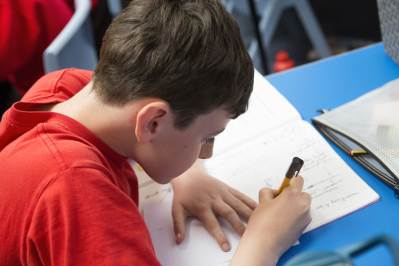Religion and Worldviews
Who is wise and understanding among you? Let them show it by their good life, by deeds done in the humility that comes from wisdom. James 3:13-18.
Click here to read about our school curriculum offer and download our progression maps
The Term Worldview
A worldview is the inhabited way in which a person encounters and interprets the world, understands it and engages with it. A person's worldview may change over time. This curriculum gives pupils the opportunity to acknowledge, explore and interrogate their own worldview as well as the worldviews of others.
Religion and Worldviews at Clifton
Our Religion and Worldviews Curriculum
At Clifton-upon-Dunsmore Church of England Primary School, we are passionate about the fundamental importance of Religion and Worldviews both in the curriculum and in the lives of our children. Religion and Worldviews has a high profile within our school. Each year group engages with a minimum of a weekly one-hour Religion and Worldviews lesson.
It is our intent that Religion and Worldviews enables our children to investigate and reflect on some of the most fundamental questions people can ask, whilst developing their knowledge and understanding of Christianity, other major world religions and non-religious views. We believe that our curriculum helps our children to gain a deep awareness and understanding of their own and others’ unique identities as they explore life’s big mysteries and consider the answers to ‘big questions’ that are presented through a wide variety of world religions and belief systems. With love and open minds, we will achieve such deep learning, which is the principal goal of our curriculum.
We have created a bespoke Religion and Worldviews curriculum which provides creative, challenging and thought-provoking education, where children can develop their knowledge, understanding and skills in this subject and are prepared for life in a modern, diverse Britain and plural world. Links with our Christian Values and support for pupil’s Spiritual, Moral, Social and Cultural Development are also intrinsic to our curriculum and have a significant impact on learners.
Two Schemes of Work
Our Religion and Worldviews curriculum is supported by two schemes. Teachers use the Coventry and Warwickshire Religion and Worldviews Agreed Syllabus along with the National Society’s Understanding Christianity (Text Impact, Connections) Project. By carefully combining the two schemes, we can ensure a coherent and comprehensive curriculum with a clear outline of core learning ‘building blocks’. We can also provide high quality, engaging and inspiring learning experiences, which reflect both the Christian nature of our school and the range of backgrounds (religious and non-religious) of our families. Therefore, we can meet the needs of ALL of our children.
Our long-term plan for Religion and Worldviews has been designed to ensure depth, breadth, balance and progression in terms of:
- The religious and non-religious worldviews studied.
- The key concepts encountered.
- The disciplinary knowledge and disciplinary skills gained (theology, philosophy, human and social sciences, history).
Skills are developed during various learning opportunities. Through puzzling, looking closely, asking questions, exploring, interpreting, comparing, evaluating, interviewing, applying, analysing, challenging, questioning, appreciating, appraising, empathising, weighing up ideas, arguing, reflecting and imagining children can deepen their knowledge and understanding of Religion and Worldviews.
We ensure that disadvantaged children and children with SEND, acquire the knowledge and cultural capital they need to succeed in life. Our Religion and Worldviews curriculum is appropriately demanding. Within our Religion and Worldviews lessons, we cater to the subject strengths and learning style preferences of our children. Children have regular opportunities to extend and apply their English, Maths, Science, I.T., Geography and History skills. We work creatively, often using Art, Music and Drama as a way of exploring themes and key questions. Children work in a variety of ways and produce a variety of outcomes (intellectual, practical, personal and social).
Reflection Time
Reflection time is built into lessons to develop the following key skills.
Positionality: Describes one’s identity, influences and potential biases, ones understanding of and outlook on the world.
Reflexivity: The process of becoming self-aware, considering one’s own thoughts and actions in light of different contexts.
Reflectivity: Active, persistent, and careful consideration of any belief or supposed form of knowledge in the light of the grounds that support it.
Every lesson, we encourage independent, thoughtful and reflective practice upon a range of questions about spirituality and identity, morality, values and commitments. Children carefully consider their developing understanding of the world and become passionate about and learn to take responsibility for their place within their school, community, country and the wider world. They understand what it means to ‘Love your neighbour as yourself’ (Luke 10:27) but more importantly they learn to live by it, like Good Samaritans.
Visits, Visitors and Special Days
Whenever possible, we have visitors from a range of religious and non-religious beliefs into school. Year groups also enjoy trips to different places of worship. By doing so, we enrich the children's learning, knowing that first hand experiences really do help to cement and develop their understanding of concepts and help them to make connections between religious and non-religious beliefs and how these are lived out through different communities. Fundraising for our chosen charity, ASHA, helps children appreciate the importance of putting beliefs into action.
As a school, we enjoy three whole days for Religion and Worldviews each year (one in Autumn, one in Spring and one in Summer). Such special days enable us to focus on a religious concept or line of enquiry in greater depth and to develop our knowledge, understanding and skills in this area – both as children and teachers! These special days also help to unite the whole school through shared themes and content during the day and a closing assembly where successes can be celebrated.
All of these amazing opportunities provide the stimulus for truly exciting and memorable “Wow” experiences for our children. With open minds and loving hearts, we know that they can, and will, achieve.
Check out our Cumulative Knowledge Organisers here:
| Abrahamic Worldviews | Dharmic Worldviews | Other Worldviews | ||||||
| KS1 | Judaism | Christianity | Islam | Sanatan Dharma | Sikhi | Buddhist Traditions | Humanism | Paganism |
| KS2 | Judaism | Christianity | Islam | Sanatan Dharma | Sikhi | Buddhist Traditions | Humanism | Paganism |
Important documents for Religion and Worldviews:
Statement of Entitlement for REReligion and Worldviews Policy 2024
Religion and Worldviews Curriculum Statement 2024
Overview of topics covered across the school:
Religion and Worldviews Long Term Plan 2024-2025
Religion and Worldviews Long Term Plan 2025-2026
Really helpful information about each scheme used:
Religion and Worldviews Parent Information SheetUnderstanding Christianity Parent Information SheetOutcomes for topics covered across the school:
Timetable for trips to places of worship:







